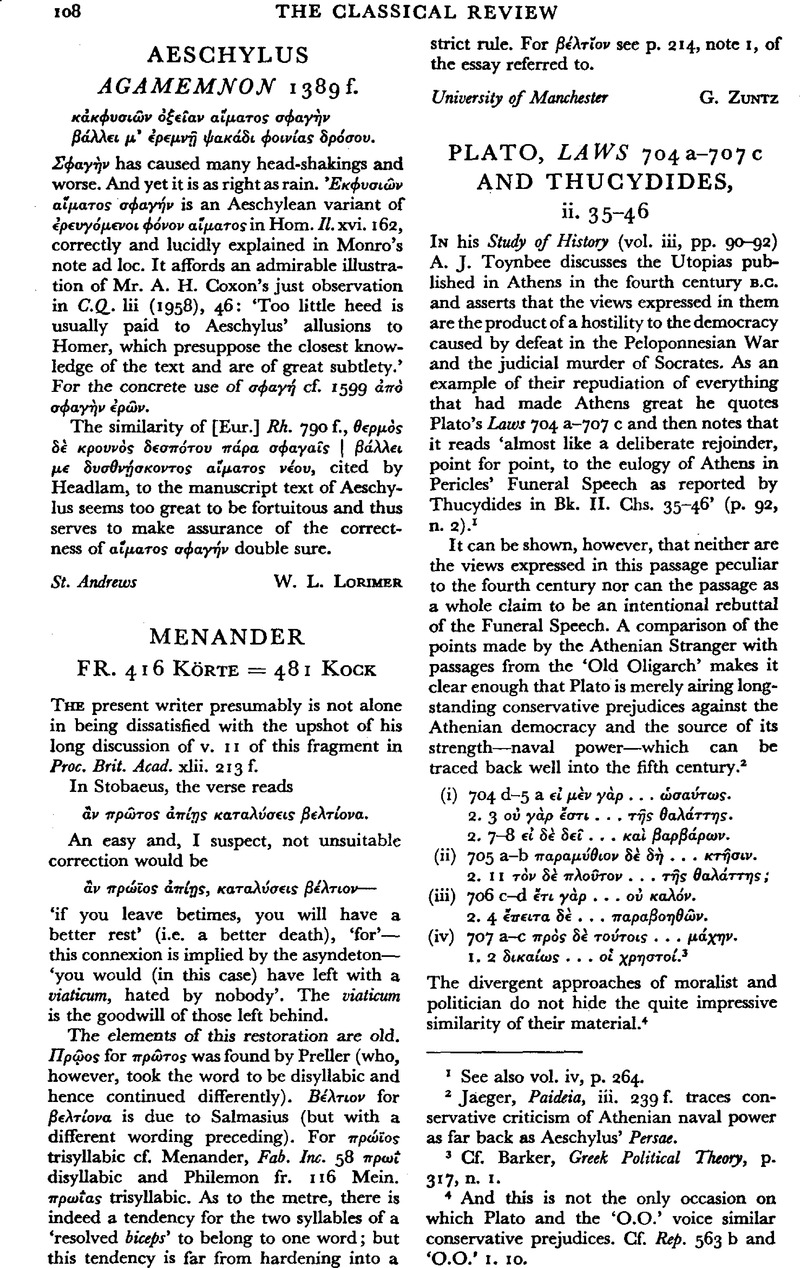No CrossRef data available.
Article contents
Plato, Laws 704a–707c and Thucydides, ii. 35–46
Published online by Cambridge University Press: 13 February 2009
Abstract
An abstract is not available for this content so a preview has been provided. Please use the Get access link above for information on how to access this content.

- Type
- Review Articles
- Information
- Copyright
- Copyright © The Classical Association 1959
References
1 See also vol. iv, p. 264.
2 Jaeger, , Paideia, iii. 239 fGoogle Scholar. traces conservative criticism of Athenian naval power as far back as Aeschylus' Persae.
3 Cf. Barker, , Greek Political Theory, p. 317, n. 1.Google Scholar
4 And this is not the only occasion on which Plato and the ‘O.O.’ voice similar conservative prejudices. Cf. Rep. 563 b and ‘O.O.’ 1. 10.


